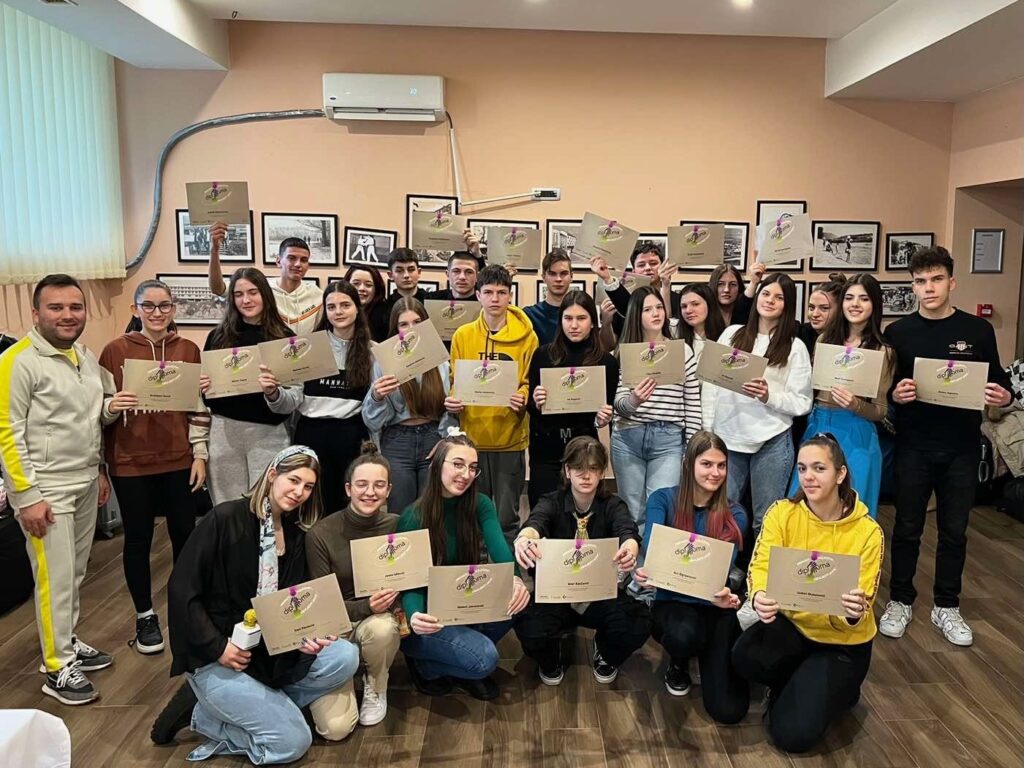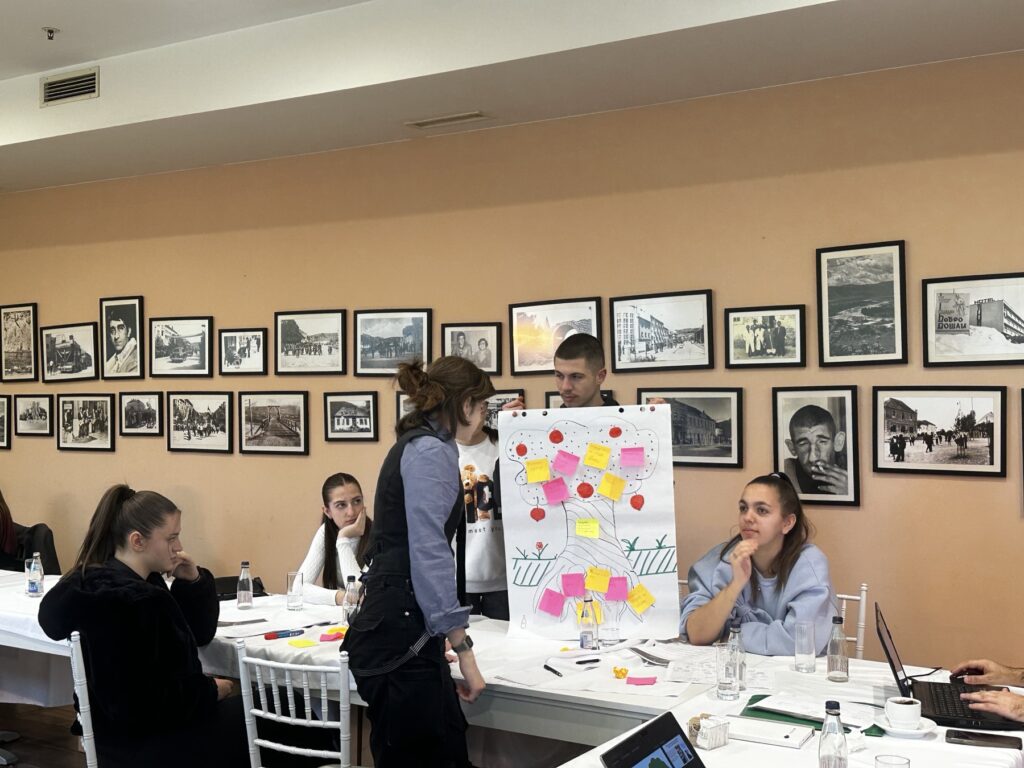With the awarding of diplomas to 25 high school students from different parts of Montenegro, the five-day Intercultural Camp ended today. It was organized by the Centre for Civic Education (CCE) from 7 to 11 February in Berane, as part of the project “Embrace Diversity, Empower Minds”, supported by the Embassy of Canada through the Canada Fund for Local Initiatives.
During the intensive and interactive programme, young participants learned about accepting diversity, breaking stereotypes and prejudices, non-violent conflict resolution, as well as advocating the concept of human rights. The work was organized through lectures, workshops, debates, role plays, discussions and film screenings, with the aim of empowering the participants to become active promoters of tolerance, multiculturalism and the protection of human rights in their communities.
“The significance of this Intercultural Camp lies primarily in promoting Enlightenment values on which a modern and progressive society is built. Emphasizing the importance of tolerance, mutual understanding, dialogue, respect for diversity, and inclusion encourages the development of a value system among young people, which should also be the goal of formal education. It is particularly important that students come from different parts of Montenegro, allowing them through various activities and workshops to get acquainted, network, and share a common experience, facilitating the development of intercultural competences,” said Vukadin Nišavić, historian and professor at the High School “Panto Mališić” in Berane, who was also one of the lecturers in this programme.
Aneta Lončar, a psychologist from the Centre “Ljubović”, shares a similar opinion. “Workshops of this kind are of exceptional importance for high school students, as they provide knowledge and skills for recognizing, facing, and adequately resolving conflicts. Workshops of this type promote empathy, the importance of tolerance, respect for diversity and mutual support, which can encourage minors to be active participants in creating a society filled with mutual respect and empathy,” she said after the workshop.
“Intercultural camp was an excellent experience for me. I had the opportunity to get to know different cultures and to understand and appreciate diversities. This is a great way to build bridges between different communities and promote peace and understanding,” says Katarina Rakočević, a student of the Mixed Secondary School “Braća Selić” from Kolašin, who participated in the programme.
“I am grateful for the opportunity to meet peers with similar ways of thinking, who want to fight for certain goals. My personal views and perspective have changed, and I have managed to break down some prejudices and build certain attitudes. This camp has had a very constructive impact on me. Although I consider myself to be a fairly developed person, after all these workshops and lectures I realized that I have a long way to work on myself,” says Mara Rakčević, a student of the “Petar Lubarda” High School of Fine Arts from Cetinje.
The intercultural camp was attended by high school students of various ages from 15 Montenegrin high schools in 9 municipalities, including Podgorica, Cetinje, Nikšić, Bijelo Polje, Kolašin, Pljevlja, Rožaj, Ulcinj and Herceg Novi. Lecturers and workshop participants came from the academic community, formal education system, and the civil sector.
The Intercultural camp was successfully completed by Andrija Stijepović, Lazar Tomić, Elmir Imširović, Helena Jovanović , Isidora Đukanović, Barbara Crnić, Milana Zejak, Jelena Milović, Itana Pavlović, Andrijana Savić, Ina Popović, Tijana Bukilić, Katarina Rakočević, Katarina Milićević, Ines Džogović, Enida Kasumović, Ida Crnovršanin, Bogdan Veličković, Karim Karalić, Aleksa Zejak, Amar Agović, Nadja Stanojević, Mara Rakčević, Ana Ognjanović and Iva Pejović.
Maja Marinović, Programme Associate



